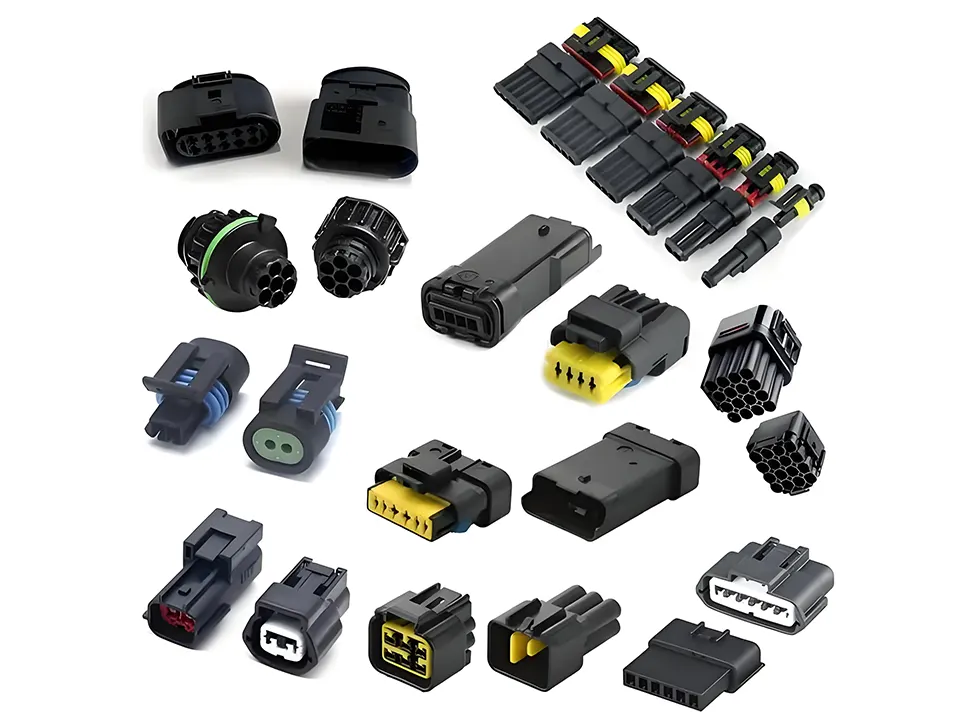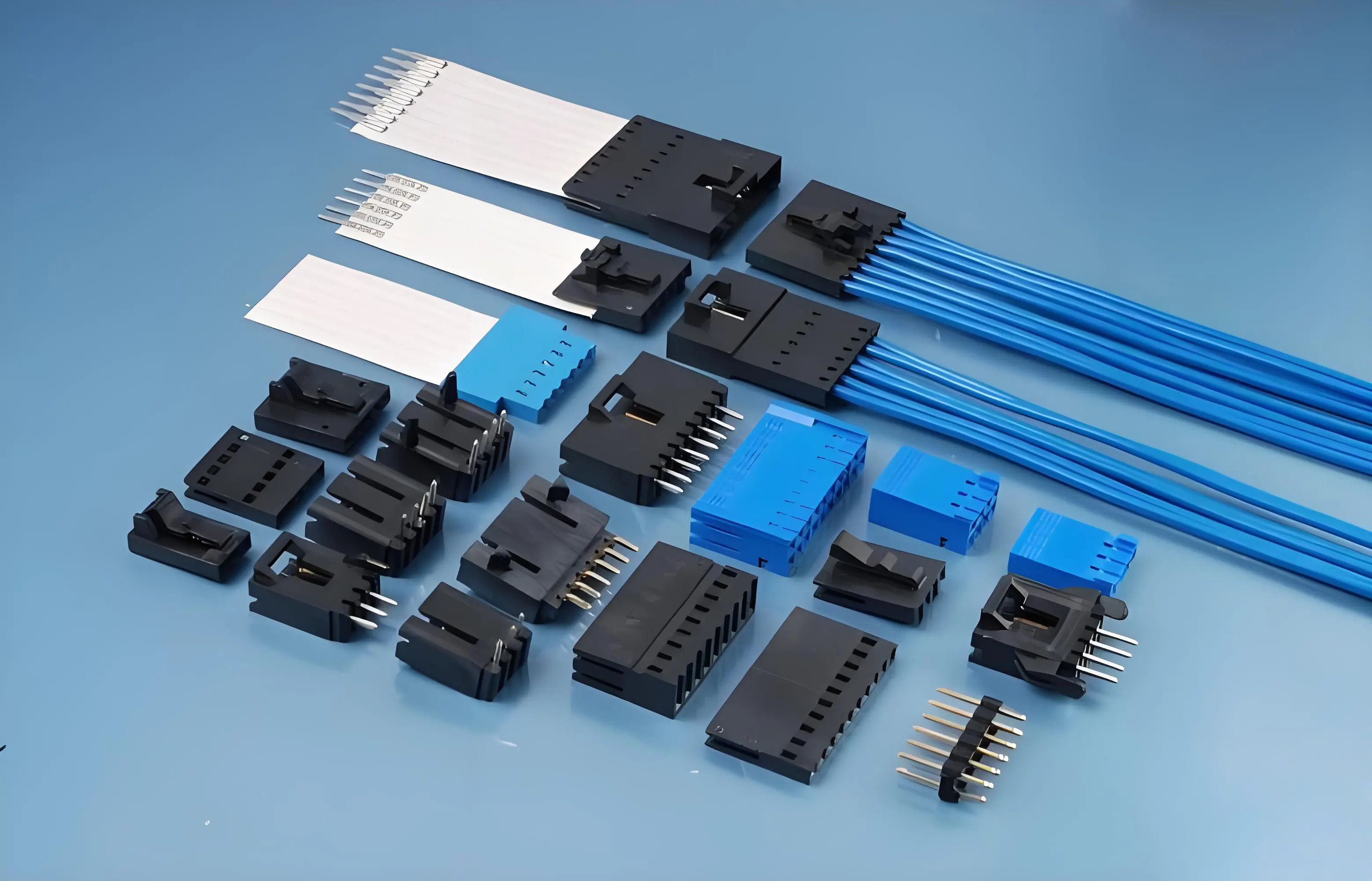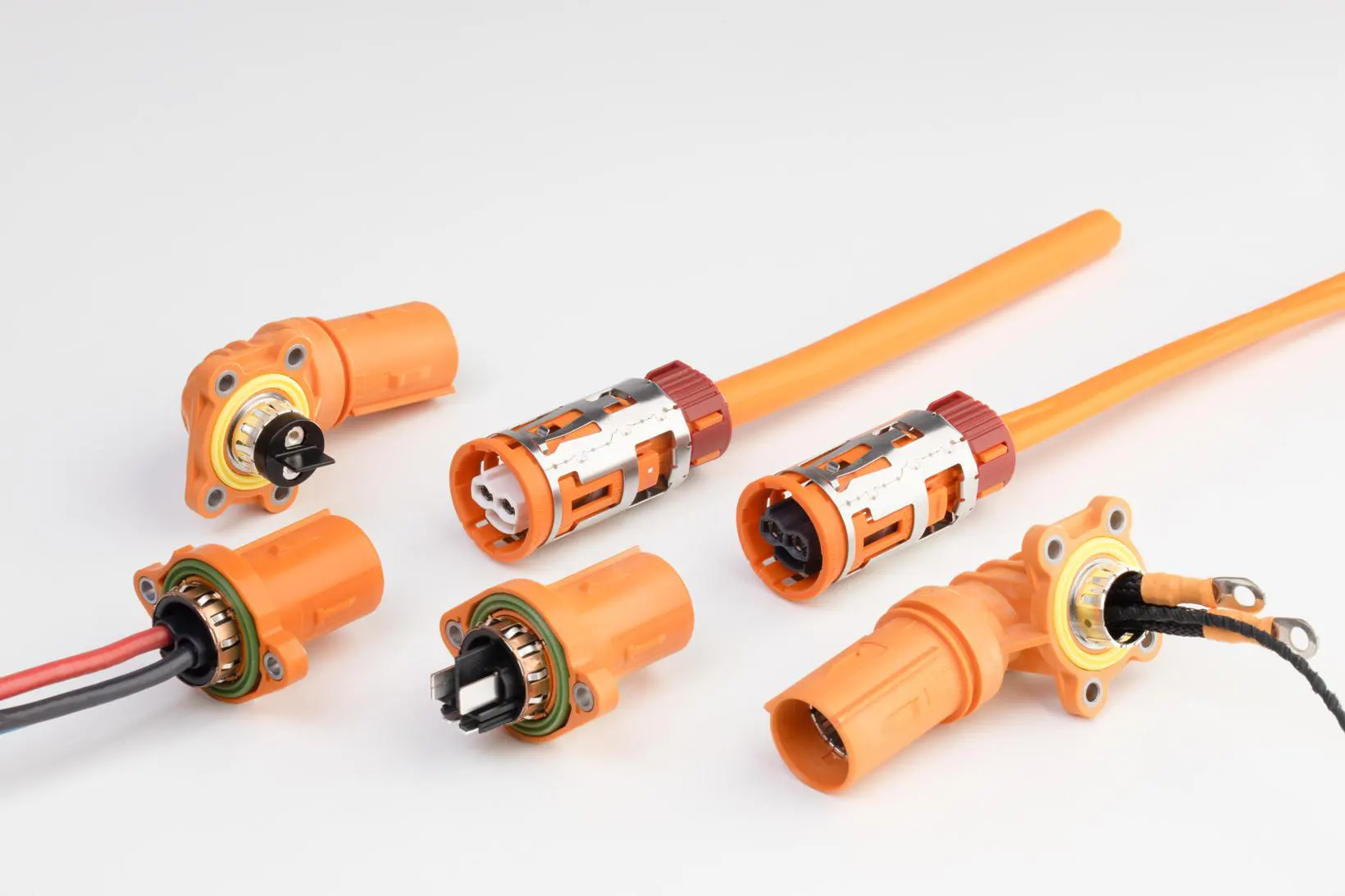How to Choose the Right Connector for Wire Harnesses?
When designing custom wire harnesses or electrical systems, the importance of selecting the right connector is often underestimated. However, connectors play a critical role in overall system performance and reliability.
The right connector ensures stable power and signal transmission, reduces long-term maintenance costs, and improves product durability.
So, how do you choose the most suitable wire harness connector? Start by considering the following key points:

1. Application Requirements
Every connector selection should begin with a clear understanding of the application:
- Voltage & Current: The connector must handle the actual operating voltage and current, with at least 20% safety margin.
- Environmental Conditions: Will it be exposed to water, dust, high or low temperatures? Do you need waterproof or dustproof features?
- Usage Frequency: Is frequent plugging/unplugging required? Does the connector need to be highly durable?
- Functionality: Is it for power transmission, signal transmission, or both?
For example, a connector used in an automotive engine bay must be highly resistant to water and vibration, while one for medical equipment may prioritize compact size, precision, and EMI shielding.
2. Connector Types
Different applications call for different types of connectors. Common options include:
-
Wire-to-Board Connectors: Connect wire harnesses to PCBs; widely used in home appliances and industrial devices.
-
Wire-to-Wire Connectors: Flexible and often available in waterproof versions; suitable for automotive and outdoor equipment.
-
Circular Connectors: Durable with robust structure; ideal for outdoor or harsh environments.
-
Standard Interfaces: USB, HDMI, RJ45, etc., used for signal and data transmission.
-
High-Frequency / Fiber Optic Connectors: For high-speed data or RF signal transmission.

3. Technical Specifications
Beyond appearance, key technical specs to consider include:
- Mating Cycles: Choose connectors designed for high plug/unplug frequency if needed.
- Wire Gauge Compatibility: Ensure the terminals match the wire size.
- Contact Resistance: The lower, the better — for stable signal transmission.
- Ingress Protection (IP) Rating: IP67/IP68 for outdoor or humid environments.
- Operating Temperature: Typically -20°C to 85°C; industrial or automotive applications may require -40°C to 125°C or higher.
4. Material Considerations
The choice of materials also impacts connector performance:
- Contact Plating: Gold plating offers better conductivity and corrosion resistance but is more expensive; tin plating is cost-effective and widely used.
- Housing Material: Plastic is lightweight and economical; metal offers better durability and EMI shielding.
Conclusion: The Right Connector Makes Your Harness More Reliable
A small connector can determine the reliability of your entire product. If you're unsure which connector is right for your custom harness project, our team can support you through the entire process—from design and selection to production.
Contact us for free technical advice or sample evaluation!

Frequently Asked Questions (FAQ)
1. What types of custom wire harness services does Kaweei provide?
Kaweei specializes in custom wire harness solutions for various industries, including automotive, medical, industrial control, and consumer electronics. We offer end-to-end services — from design consultation and component selection to prototyping and mass production — tailored to your specific needs.
2. What information do I need to provide for a custom wire harness?
To get started, you can provide wiring diagrams, connector models, wire specifications, and application requirements. If you don’t have complete technical data, our engineering team can assist with design optimization or create a custom solution from scratch.
3. Are Kaweei’s wire harnesses compliant with international standards?
Yes. Kaweei can produce wire harnesses that comply with UL, CE, RoHS, IATF16949, ISO13485, and other relevant international standards. Third-party testing reports can be provided to ensure product safety and compliance.
4. Does Kaweei support small-batch or prototype orders?
Absolutely. We understand the need for flexibility during the product development phase. Kaweei offers fast prototyping and supports low-volume production to help customers test and validate their designs before scaling up.
5. How does Kaweei ensure delivery timelines and product quality?
Kaweei has a strict quality management system and structured production workflow. All critical harnesses go through 100% electrical testing, and we implement full IQC, IPQC, and OQC procedures. We also offer flexible lead times to meet urgent project requirements while ensuring consistent quality.




